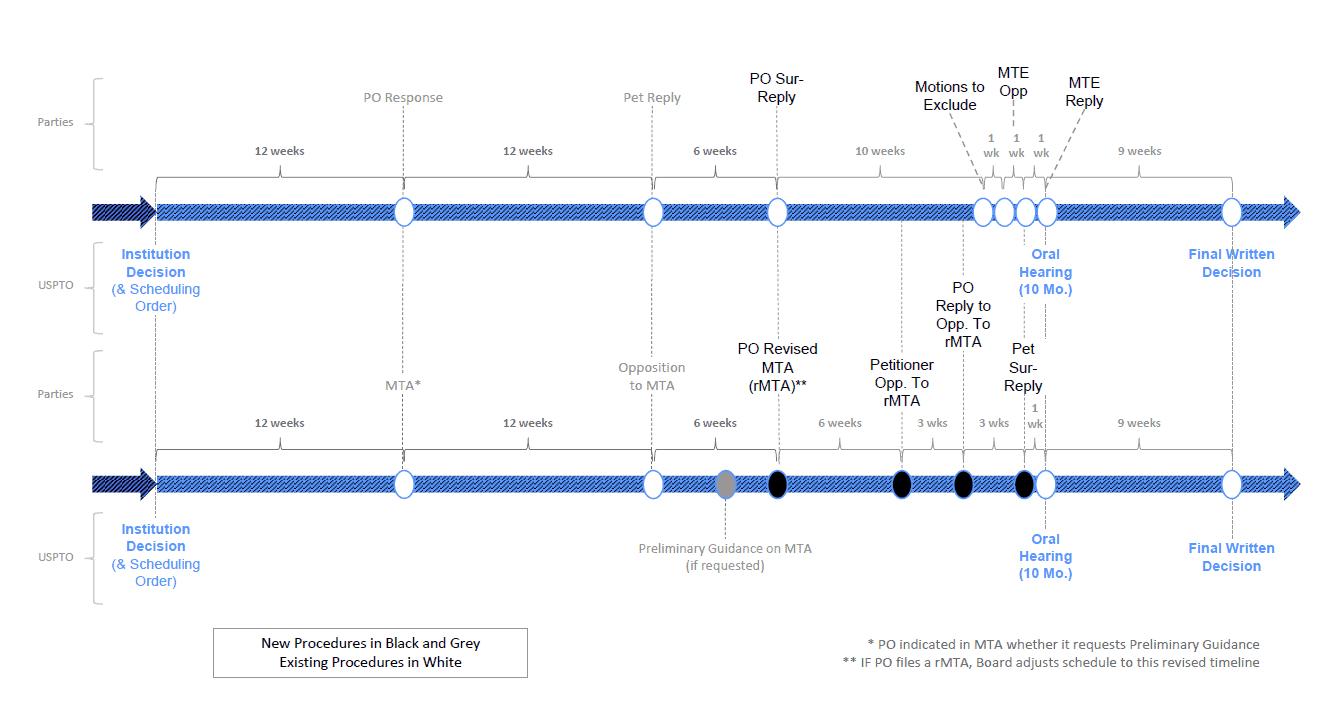What Do We know?
1. The Patent Trial and Appeal Board (“PTAB”) has implemented a one-year pilot program that revises current motion to amend (“MTA”) practice in America Invents Act trial proceedings.
2. Effective March 15, 2019 for all trial proceedings instituted on or after that date.
3. Patent owner has two new options: (1) request non-binding preliminary guidance from PTAB, that will issue one month after petitioner’s opposition to a MTA, and (2) file a revised MTA in response to PTAB’s guidance and/or petitioner’s opposition.
4. PTAB preliminary guidance WILL:
5. PTAB preliminary guidance WILL NOT:
6. A revised MTA replaces the MTA and MUST INCLUDE:
7. A revised MTA MAY INCLUDE:
8. Patent owner also can choose to file a reply to petitioner’s opposition to the MTA and PTAB’s preliminary guidance (if applicable), do nothing, or withdraw the MTA. PTAB has summarized the procedure and deadlines in the timeline below:

Observations and Practice Tips:
1. PTAB judges will face tremendous time pressure to provide meaningful MTA guidance without commenting on the originally issued claims.
2. Look for PTAB to use a consistent, short form template for preliminary guidance.
3. Two as-of-right amendment opportunities should improve PTAB’s grant rate for MTAs (currently ~ 10-15%) and support an incremental increase in MTA filings (but intervening rights and past damages concerns will continue to restrain MTA filings).
4. Rare will be the patent owner who does not request preliminary guidance from PTAB, although some comments suggest settlement might be dissuaded in certain circumstances.
5. Proposed time frames are punishingly short if a revised MTA is filed.
6. Patent owners can address §§ 101 and 112 issues in a MTA. Amazon.com, Inc. v. Uniloc Luxembourg S.A., IPR2017-00948, Paper 34 (PTAB Jan. 18, 2019) (designated Precedential March 18, 2019).
7. Petitioners should consider possible estoppel effects under 35 U.S.C. § 315(e).
8. Patent owners should consider possible prosecution history estoppel effects.
777 South Flagler Drive
Phillips Point East Tower, Suite 1000
West Palm Beach, FL 33401